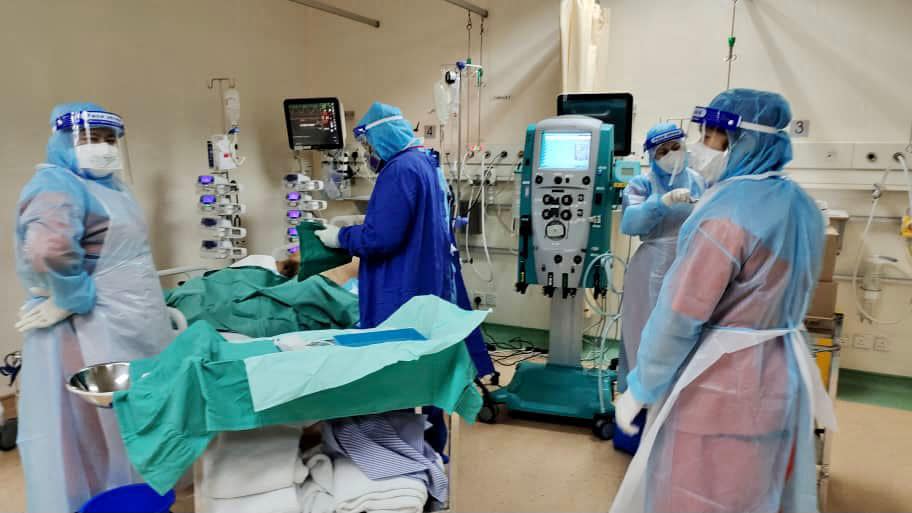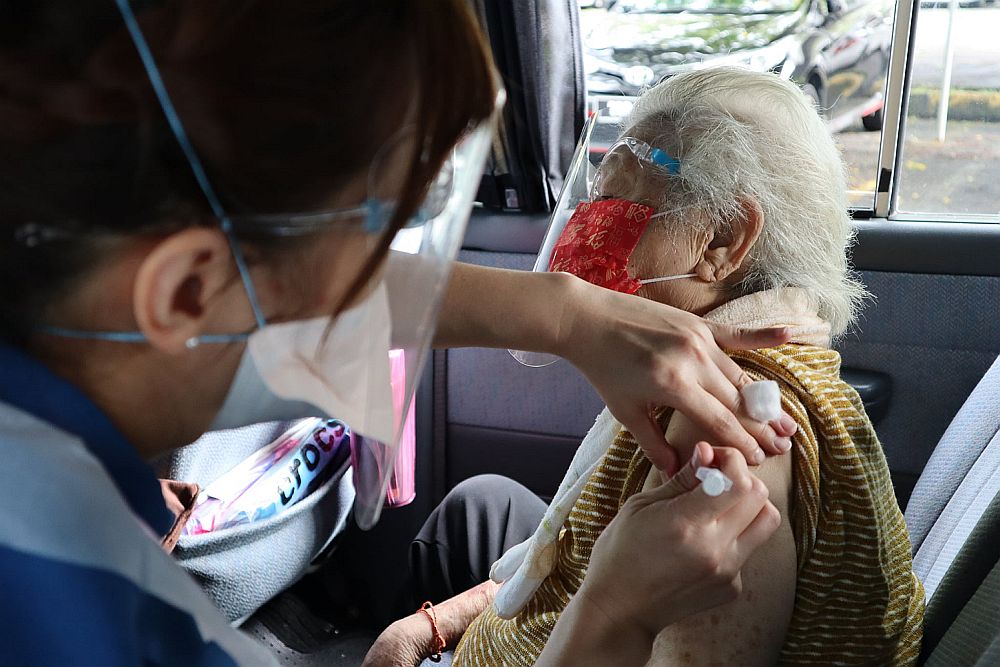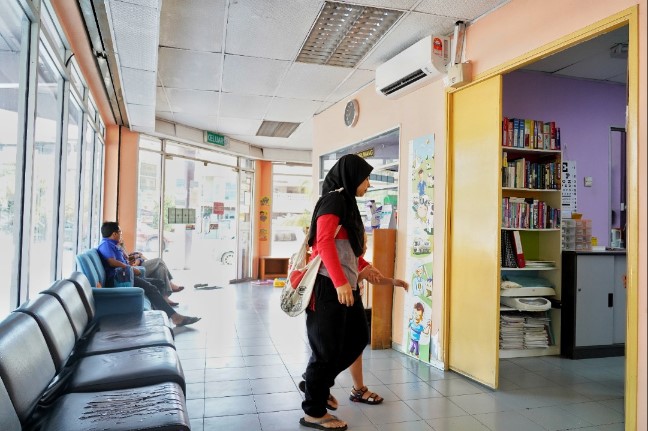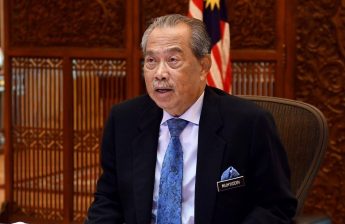KUALA LUMPUR, Oct 4 — Immunologists and virologists called for a comprehensive study in Malaysia to prove waning immunity from Covid-19 vaccines before rolling out booster shots across the population.
Experts highlighted the need for in-depth studies focusing on antibodies, as well as response of B cells and T cells — three key factors of the immune system — to clearly understand Covid-19 infection among fully inoculated people. Although scientists globally agree there is some waning immunity after vaccination, they also point out that the process is not the same for all types of vaccination.
Research incorporating evolving Covid-19 vaccine immunity and immune memory should be first studied thoroughly before administering Covid-19 booster shots, according to Associate Professor Dr Chan Yoke Fun from the Department of Medical Microbiology in the Faculty of Medicine, University of Malaya.
“Unfortunately, we have no Malaysia data yet,” Dr Chan, a virologist, told CodeBlue.
“We desperately need some scientific data before considering a booster programme in Malaysia. We need data on both arms of immunity: the neutralising antibodies and the T-cell mediated immunity.”
According to scientific journal Nature, neutralising antibodies, which intercept viruses before they infiltrate cells, might not have much staying power as they taper off in several months after a sharp rise following vaccination. However, cellular immune responses are longer lasting.
Memory B cells, which can quickly deploy more antibodies during re-exposure to the virus, tend to remain, as do T cells that can attack already-infected cells. Both B cells and T cells give an extra layer of protection should SARS-CoV-2, the virus that causes Covid-19, get past the body’s first line of defence, wrote Nature.
Dr Chan said that third Covid-19 doses are required for immunocompromised people, such as elderly persons, HIV patients, transplant patients, and cancer patients.
“Some data showed that these people didn’t respond adequately to the first two doses,” she said. “And that this group will require another dose.”
Next, a booster shot is needed if the immunity that a person developed from a vaccine decreases over time.
“Presently, there is no strong evidence that this happened, and vaccines still protect against severe disease, hospitalisation or even death.”
Dr Chan added that a booster shot could be given if the performance of the vaccines is less or inadequate against some of the variants of concern that have emerged. “Presently, all vaccines are still performing very well against the Alpha, Beta and Delta variants.”
Malaysia’s first real-world study on Covid-19 vaccine efficacy, the Recovam study undertaken from April 1 to September 12, during which Delta emerged here, showed that two doses of the Pfizer-BioNTech, AstraZeneca-Oxford, and Sinovac vaccines were highly effective in preventing infection, symptomatic disease, intensive care unit (ICU) admission, and death. Although Recovam showed a 5 per cent breakthrough infection rate 120 days after the second dose, lead researchers from the Institute for Clinical Research (ICR) told the media recently they were still compiling data on long-term immunity.
“We do not really know how long will your memory cells give you the immunity that is desirable against Covid-19,” ICR director Dr Kalaiarasu Peariasamy told a media briefing on September 23, adding that neutralising antibody levels begin falling within six to eight months after vaccination.
Dr Chan strongly emphasised that scientific evidence is crucial before implementing a mass Covid-19 booster shot programme. The government is set to roll out third doses for the elderly with underlying health conditions, people with weak immune systems, frontline health workers, and residents and workers at long-term care facilities this month.
Health Minister Khairy Jamaluddin also announced last September 24 that boosters would be given to “all individuals” after prioritising high-risk groups, while National Recovery Council chairman Muhyiddin Yassin said last September 27 that the government has procured enough coronavirus vaccines to provide boosters to all adult residents in Malaysia.
“The duration of vaccine-induced protection is likely to depend on many variables, such as the vaccine product, the primary vaccination schedule, the age and or underlying medical conditions of the vaccinee, risk of exposure, and circulation of specific variants,” Dr Chan pointed out.
“We need solid evidence that immunity is waning, and protection level in the population has dropped before considering a wider booster strategy.”
Assoc Prof Dr Chan Yoke Fun, Department of Medical Microbiology in the Faculty of Medicine, University of Malaya
“Data for breakthrough infection can also help to inform what population requires a booster. We should look at the age, comorbidity status, and type of vaccines.”
Dr Chan also recommended that Malaysian authorities study the risk from widely introducing Covid-19 booster shots too soon or too frequently. “More data on immune-mediated side-effects such as myocarditis and Guillain-Barre syndrome are needed.”
Consider Hospitalisation, ICU Rates First

Certain fractions of the community — including elderly people, health care frontliners, and immunocompromised individuals — are required to take Covid-19 booster shots, according to Dr Purvi Parikh, an adult and paediatric allergist and immunologist with Allergy & Asthma Network in the United States.
“If you are immunocompromised, you may not have had a good immune response with the initial vaccination,” Dr Parikh told CodeBlue.
She listed possible reasons for the resurgence of Covid-19 cases in states where more than 80 per cent of adults have been fully inoculated.
“New variants which the vaccines are less efficacious against,” she said, continuing: “Tourism of unvaccinated individuals, waning immunity and cold chain issues can all be possibilities.”
Dr Parikh highlighted several factors that should be considered or studied before a country administers booster shots: “Whether there is an increase in hospitalisations and death and whether or not current resources are being depleted, such as hospital beds and ICU.”
In Malaysia, Covid-19 hospitalisation rates have declined across most states, with only Sarawak showing a steep rise since August 22. Slight up-ticks in the average number of Covid-19 patients hospitalised were recorded in Negeri Sembilan since September 27, Perlis since September 24, and Putrajaya since September 30.
The ICU situation is more varied. Most states recorded a drop in average Covid-19 ICU rates except Penang, Perlis, and Sarawak (slight decline since September 29).
Boosters Only Necessary For High-Risk Groups At The Moment

Dr Kumitaa Theva Das, a virologist from Universiti Sains Malaysia, said Covid-19 booster shots should only be prioritised for high-risk groups, including health care frontliners, elderly people, and those with immunodeficiencies.
“Widespread rollout of booster shots is not necessary at the moment,” Dr Kumitaa told CodeBlue.
She listed three parameters — waning immunity, circulation of variants of concern, and lifting movement restrictions — that influence a Covid-19 booster programme.
Dr Kumitaa explained that antibodies waned among elderly people as early as six weeks after the second shot, and in some cases falling more than 50 per cent over 10 weeks, citing findings in the United Kingdom.
“But other than antibodies, we also have memory B cells and T cells which fight infection. We also need to be aware that antibody levels vary widely between people, and that many factors can influence antibody levels.”
Dr Kumitaa Theva Das, Universiti Sains Malaysia
“The antibody levels produced after vaccination is also a lot higher compared to the antibodies produced after someone has been infected with SARS-CoV-2, which suggests that there is a certain threshold and anything above a baseline does not provide more protection, so the drop may not necessarily be detrimental, especially if you are not in the high-risk group.”
Dr Kumitaa, however, noted that the emergence of prevalent Covid-19 strains reportedly reduced immune protection after vaccination.
“Given how long this pandemic lasts, it is likely that boosters or they may be annual shots in the future, and may eventually be common practice, similar to flu shots.”
Personalised Booster Shot

Dr Kent Woo, a consultant allergist and immunologist at Gleneagles Hospital in Kuala Lumpur, said there is no “yes or no” binary answer for the need to administer Covid-19 booster shots in Malaysia, as he suggested that public policies, medical research, as well as individual choice be considered in parallel.
He said that although several studies in other countries support the administration of coronavirus booster vaccines, there are other confounding factors to be considered. “We have to be cautious of only relying on observational studies.”
Dr Woo acknowledged the possibility that fully vaccinated individuals can still be infected by the coronavirus and develop severe disease due to individual genetic variation which determines antibody creation and immune response towards vaccination. The total immune response and antibody response for a human being after any vaccination varies according to the type of vaccine.
“The degree of protection will depend on the level and quality of the antibodies produced in response to the vaccine,” Dr Woo told CodeBlue.
“More research will need to be done to determine what the protective antibody levels will be for each vaccine, accepting that antibody level measurements are the easiest available method to measure immune protection.
“We also know that the immune response also depends on non-antibody pathways such as T-cell mediated immune response. We still do not have an easily available commercial method to measure T-cell response to vaccines.
“So the important question should be on how to accurately determine someone who should and will benefit from receiving booster shots?”
Dr Woo, who also commented on heterologous vaccination, or mixing and matching Covid-19 vaccines, said, “studies indicate that it would lead to a more robust immune response”, by observation of international studies. Malaysia’s National Pharmaceutical Regulatory Agency (NPRA) has yet to reveal which vaccines are suitable for boosters.
He also suggested that the government consider a personalised approach in offering Covid-19 boosters to fully vaccinated people.
“All individuals that have received their required two doses of vaccine and labelled as vaccinated status should be given the opportunity for personalised medicine in which they can discuss with their health care provider and be evaluated to determine if they should go for booster doses,” he said.
“The doctor can then consider the individual’s medical condition and personal preferences and then make proper recommendations. There are individuals that are not on the current priority list for booster vaccinations that actually should be considered to receive booster vaccinations.”







